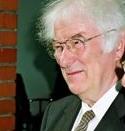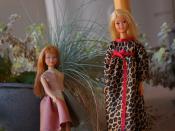Outline
In this paper I will attempt to outline the intention and effect of the narrative style of McCabe in his novel 'The Butcher Boy' through his use of language, time and place and the distortions these go through as they are filtered through the mind.
Introduction
The contemporary Irish novel occupies a space that is similar to that which one of our leading postcolonial critics, Homi Bhabha, identifies as the 'in-between' space or 'time lag' which those who have been previously marginalized or silenced enter before they find their new identities (Peach, 2004). For much of the century Irish writing had been based 'on the hyphen' between British and Irish cultures and in particular the clash between them, as illustrated by artists such as Yeats, Seamus Heaney and Elizabeth Bowen. The Butcher Boy is one of those novels that reach beyond this premise; it is a search for a identity but it a search that is individual by nature but grand in scope, using an Irish voice to explore the nether regions of the mind.
On the surface, "The Butcher Boy" is a story of a boy from a dysfunctional family who comes of age in small-town Ireland in the early 1960s. But unlike other tales of survival, The Butcher Boy is less about overcoming obstacles than about giving in to them (O' Dometer, 1997). The narrative of Francie also unquestionably allows McCabe to explore the mind of the insane; for how can you truly explore a minds inner-workings in the third person? It allows him free reign, detaching himself as the author, to describe and carry out the acts of Francie. It destroys any limits that morals may put on art, and the morals the artist (however knowingly) enforces on their work.
McCabe's Intentions.


